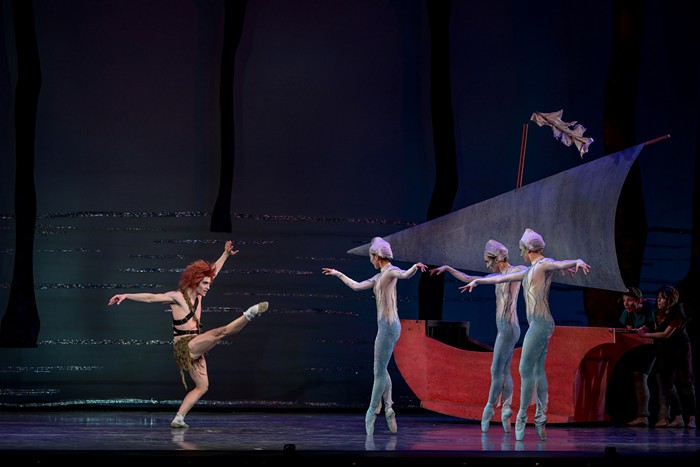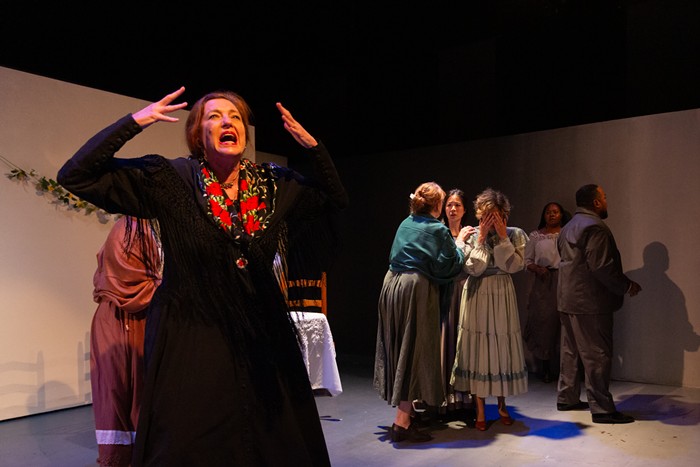Let's just get this out of the way: William Hurt is a very talented actor and it's fantastic to see him up close and personal in ART's production of Vanya. He gives a magnetic performance as the eccentric-but-sexy Dr. Astroff, and it's quite understandable why all the female characters in the play want to nail him.
Moving on.
Tom Wood's adaptation of Chekhov's Uncle Vanya is set in a farming community in western Canada. Vanya (Allen Nause) and his niece Sonya (Valerie Stevens) have spent years toiling on the farm and sending money to help pay Sonya's father Alexander (Tobias Andersen)'s way through college.
When Alexander comes to visit, however, the pride that Sonya and Vanya take in his accomplishments quickly turns to resentment, as it becomes clear that Alexander fails to appreciate the sacrifices they've made for him. Alexander's beautiful young wife Elena (the woefully miscast Krista Vendy) throws the menfolk into a collective tizzy—Vanya is pathetically smitten, while Sonya is oblivious to the fact that the man she loves, Dr. Astroff, is only coming around to see Elena.
Despite restrained performances by Hurt and Stevens, Vanya suffers from an irritating heavy handedness, particularly in the first half. In a Chekhovian landscape the truest and most painful moments tend to be the most understated; too much of the work here is done for the audience. When Alexander, for example, doesn't allow Elena to play the piano one night, that moment is robbed of its poignancy by a heavy-handed bit of directing: piano music tinkles, Elena holds up her hands, presses them to her face. The choreographed bit of sentimentality rings trite; far less affecting than Stevens' pathetic optimism, say, or any of Nause's longing glances at Elena.
This is not to say, though, that director JoAnn Johnson's decisions ruined the play. While certain moments struck me as overplayed, the production nonetheless contains powerful currents of sentiment—hopelessness and hope, resentment and passion—that are brought to a head by Valerie Stevens in the heartbreaking final scene. While there is much to nitpick, it's equally true that it's hard to imagine anyone walking away from this production unaffected—when it works, it really, really works.


















